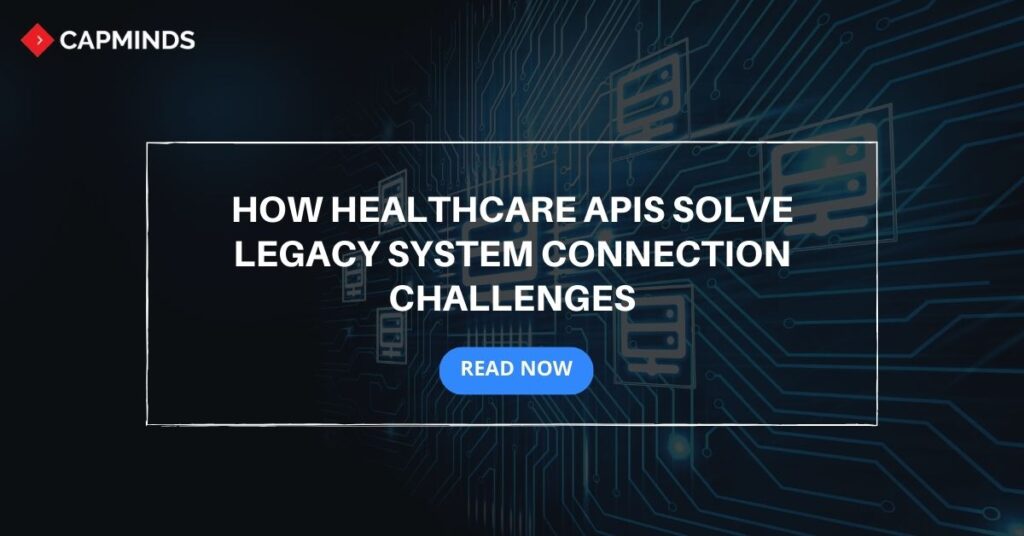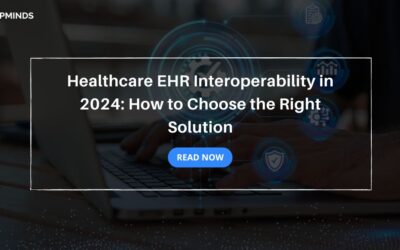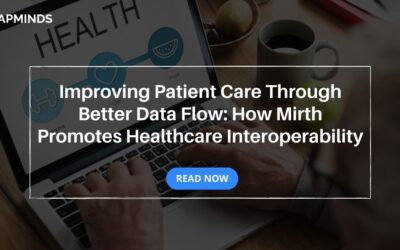How Healthcare APIs Solve Legacy System Connection Challenges
The healthcare industry relies heavily on legacy systems and outdated technology that often don’t connect or integrate well. It’s not uncommon for a single hospital to have hundreds of disconnected health IT systems that don’t interact or share data well.
These range from electronic medical records (EMRs) and practice management platforms to clinical decision support tools, medical devices, and more.
This vast ecosystem of disconnected systems leads to significant data silos, gaps in patient histories, duplicated tests and procedures, errors from manual data entry, and more. Simply put, a lack of interoperability and system integration harms the quality, efficiency, and continuity of care.
However, the interfaces that connect these disparate healthcare technologies are rapidly improving thanks to modern application programming interfaces (APIs).
RELATED: Case Study: Integrating HL7, FHIR, & API Capabilities with CapMinds
What are Healthcare APIs?
APIs act as a code-based “messenger” that allows two applications to communicate with each other safely and securely. They essentially define a set of programming protocols for how data requests and transfers can happen.
Healthcare organizations can leverage APIs to bridge both modern cloud-based apps as well as older, on-premise systems. This makes it possible to achieve two-way data integration that wasn’t feasible in the past.
Key Benefits of Healthcare APIs
Here are some of the biggest ways healthcare APIs are overcoming legacy technology restraints:
- Break Down Data Silos: APIs facilitate interoperability, allowing patient health data to flow between EMRs, insurance claims systems, health information exchanges (HIEs), telehealth platforms, wearables, and more. This paints a more complete picture.
- Improve Operational Efficiency: Real-time data sharing via APIs can cut down on duplicate tests, eliminate errors from manual reentry, streamline administrative tasks, and optimize workflows.
- Enhance Patient Experience: Patients benefit from smoother care coordination as their health records are available wherever they receive treatment. APIs also enable better patient apps and access.
- Fuel Innovation: With more ability to securely share data, APIs open healthcare systems to create innovative applications that leverage real-world clinical information.
Real-Time Examples of Healthcare API Applications
Healthcare APIs are already being used to address a variety of challenges and improve patient care:
- Patient portals: APIs allow patients to securely access their medical records, view lab results, and schedule appointments through online portals.
- Telemedicine: APIs enable healthcare providers to conduct virtual consultations, monitor patients remotely, and transmit medical data securely.
- Wearable device integration: APIs facilitate the integration of wearable device data into patient records, providing real-time insights into patient health and activity levels.
- Data analytics: APIs enable researchers and analysts to access and analyze large datasets to identify patterns, predict trends, and improve healthcare outcomes.
Healthcare API Adoption Rate
The adoption of healthcare APIs is on the rise, driven by the increasing need for data integration and interoperability. According to a recent HIMSS survey, 89% of healthcare organizations are using or planning to use APIs to connect their systems.
RELATED: HAPI FHIR: A Limited & Complete Guide for 2023
Overcoming Legacy System Limitations
While challenging, connecting legacy healthcare technologies via well-designed APIs can be transformative. APIs serve as the critical middleware that bridges old and new systems.
With thoughtful API governance policies, healthcare organizations can overcome decades-old interoperability blockers.
This will continue fueling improved care coordination, efficiency, and patient experiences. Through incremental integration of legacy systems, APIs promise to help propel healthcare forward.
CapMinds as your API integration partner
CapMinds brings over a decade of hands-on experience delivering innovative, scalable API integrations for healthcare organizations. Their certified engineers and architects design flexible API solutions to meet the unique needs of your existing health IT environment and workflows.
Whether developing APIs internally or integrating with external cloud platforms, CapMinds follows proven implementation methodologies centered around:
- Collaborative Discovery & Planning
- Secure API Design Best Practices
- Compliant Cloud Hosting Assistance
- Testing & Iterative Deployment
- Ongoing Management & Support
Contact CapMinds today to explore how custom API solutions can optimize your health IT systems and data liquidity.




